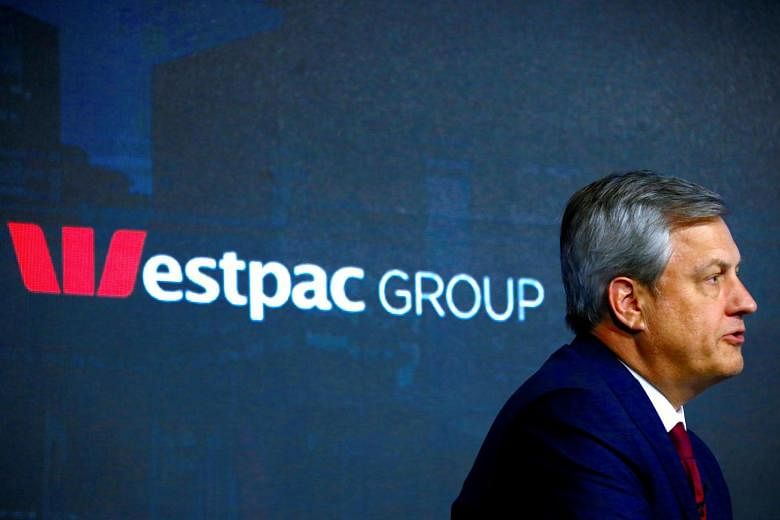SYDNEY (BLOOMBERG) - Westpac Banking Corp. "unreservedly" apologised after Australia's financial crimes agency alleged a dozen customers funnelled money to Southeast Asian nations to pay for child pornography and sexual abuse, amid the nation's worst ever breach of money-laundering laws.
"The notion that any child has been hurt as a result of any failings by Westpac is deeply distressing and we are truly sorry," Chairman Lindsay Maxsted said in a statement after the board met Friday (Nov 22).
"As a board, and as individuals, we are devastated by the issues raised."
While not commenting explicitly on the future of Chief Executive Officer Brian Hartzer, Maxsted said the "board, CEO and management team are fully committed to fixing these issues."
Hartzer, 52, has been under pressure since the bank was sued on Wednesday for allegedly breaching money-laundering laws 23 million times, a number that puts it among the worst transgressions reported globally in recent years.
While Hartzer has vowed to stay in the job and lead the response to the claims, the bank has faced criticism from Prime Minister Scott Morrison, pension funds and investors.
In off-the-record conversations, fund managers have expressed their horror at the extent of the allegations. They said they were angry at the apparent slowness of management in rectifying the problems and questioned whether the board had the right skills to oversee executives. Most have questioned whether Hartzer could survive.
Westpac said it will appoint independent experts to review efforts to improve compliance with anti-money laundering and counter-terrorism financing laws. It has also started talks with community groups about taking further steps to fight child exploitation.
The suit alleges that between November 2013 and June 2019, Westpac failed to report more than A$11 billion (S$10 billion) in international transfers, and laid the blame on "indifference by senior management and inadequate oversight by the board."
Among the most serious allegations, the Australian Transaction Reports and Analysis Centre said Westpac failed to carry out appropriate due diligence on 12 customers whose accounts showed repeated low-value transactions to countries in Southeast Asia including the Philippines, even though it knew these patterns were indicative of child exploitation risks.
In one case, a customer in October and November 2014 transferred money to a person in the Philippines who was later arrested for child trafficking and exploitation involving the live streaming of child sex and offering minors for sex.
Westpac shares fell for a third day in Sydney, extending a slide that has wiped A$6.4 billion off the bank's market value. The stock closed at A$24.77, the lowest in almost 10 months. Shares of the other big banks also fell this week, dragging the benchmark index to its worst decline in seven weeks.
While Hartzer is safe for now, other local bank CEOs have been brought undone by scandals in the past two years after initially vowing to stay on.
In August 2017, Ian Narev resigned as Commonwealth Bank of Australia CEO less than two weeks after the lender was sued for more than 53,000 breaches of money-laundering rules. That case was eventually settled with the bank paying a record A$700 million fine.
In February this year, National Australia Bank CEO Andrew Thorburn and Chairman Ken Henry quit after being the target of withering criticism in a report into financial industry misconduct, which questioned whether they were capable of leading the lender's response to a string of scandals, including charging customers for services they never received.
Banks around the world have been caught in a series of high-profile laundering scandals. Danske Bank is the target of criminal probes in Denmark, Estonia and France after claims it was involved in a scheme to funnel dirty money from Russia and other former Soviet states to the West. HSBC Holdings was fined US$1.9 billion by the US Justice Department and bank regulators in 2012 for failing to do enough to monitor money laundering in its global operations.

